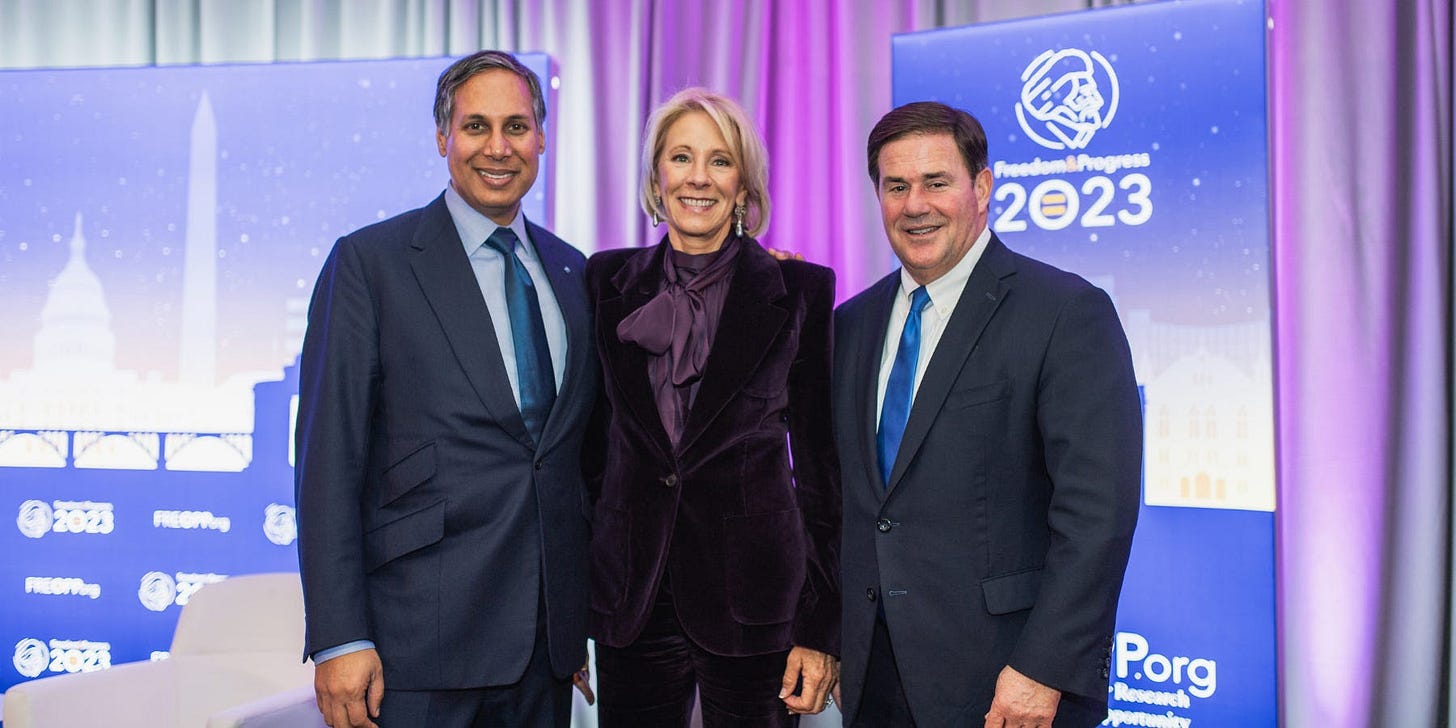Student loan forgiveness court battles continue
But the Debate Ignores Long-term Solutions that Could Help the Poor

Biden administration debt relief plan still halted in the courts
The Biden Administration’s student debt forgiveness plan remains held up in the courts, halting a largely regressive plan that does little to change the financial incentives that encourage colleges to raise tuition prices. Such a shift in incentives, particularly through limiting federal subsidies for negative ROI degrees, is needed to make meaningful headway on reducing the cost of higher education, which remains a huge challenge for those below the median income.
Since the Supreme Court’s June 2023 ruling in Biden v. Nebraska, which struck down the initial student debt relief plan passed through executive order, the Biden Administration has since formulated a new plan for broad based student debt forgiveness using the authority of the Higher Education Act—a different legal strategy from what the administration cited in its unsuccessful 2022 plan.
Since announced in April 2024, the new Biden debt forgiveness plan is estimated to be in the amount of approximately $147 billion to more than 25 million Americans. This includes relieving the loans for those who accumulated decades of interest or failed to qualify for relief through other channels. It’s a particularly poorly designed policy which provides asymmetric relief for higher income individuals, in that it targets older individuals who attended college some time ago and have likely higher incomes when compared to individuals who recently attended college.
Several lawsuits filed by Republican state attorney generals have since followed.
Earlier this October, the Biden Education Department was on track to move forward with its planned forgiveness. However, a federal judge in Georgia found that the state of Georgia, one of the seven states that challenged the loan forgiveness program through its state AG, lacked standing and hence could not be the jurisdiction for the lawsuit. The Georgia judge’s ruling, by lifting a temporary restraining order halting the relief plan, in theory also allowed for administrative preparations for broad-based student loan forgiveness to continue. This created some expectation forgiveness could go into effect as early as Autumn 2024, getting the hopes up of forgiveness advocates and the Biden Administration.
However, the case was also transferred to the Eastern District of Missouri, and within 24 hours, the Missouri judge in the case granted an injunction at the Republican state AG’s request on Thursday, halting the Biden Administration’s progress on debt forgiveness.
All of this ignores the broader challenge in higher education: skyrocketing costs. According to the College Board’s 2023 report, Trends in College Pricing and Student Aid, annual cost of college (including tuition, housing, food, books, and transportation) now averages at $28,840 for four-year in-state public college, $46,730 out-of-state public college, and $60,420 for four-year private colleges.
Forgiveness, if anything further incentivizes further tuition increases on the part of schools without being held accountable to any outcomes for students.
Improving college access and affordability
There’s no denying that federal subsidies are part of the cost problem. As I’ve written before, research by New York Fed economists David O. Lucca, Taylor Nadauld, and Karen Shen published in the Review of Financial Studies finds that increasing federal student-aid subsidies cause higher college tuition.
Schools have every incentive to take advantage of charging more tuition when such funding comes through the federal government with no accountability.
Rather than forgiving student debt, the federal government should stop subsidizing degrees with a negative return on investment (ROI). As FREOPP’s ROI Calculator shows, 23 percent of bachelor's and 43 percent of master’s degrees have a negative return on investment.
What could be the right long-term policy solution to provide opportunity through education to those below the median income? Promoting more affordable degrees with positive ROI. How might we do that? Restrict federal student loans to degree programs that do not have a positive ROI. Rep. Virginia Foxx’s College Cost Reduction Act includes a number of these ideas. It’s only by shifting the incentives of universities that we can make progress on limiting rising tuition, especially for college degrees that don’t foster upward mobility.
Register today for Freedom and Progress 2024
Please mark your calendars for FREOPP’s annual Freedom & Progress conference in Washington, D.C., on November 17-19. (Details are available here.)
Last year, FREOPP honored former Education Secretary Betsy DeVos and former Arizona Governor Doug Ducey for their leadership in expanding parental choice in education. We hope you can join us for this year’s conference!
FREOPP’s work is made possible by people like you, who share our belief that equal opportunity is central to the American Dream. Please join them by making a donation today.



